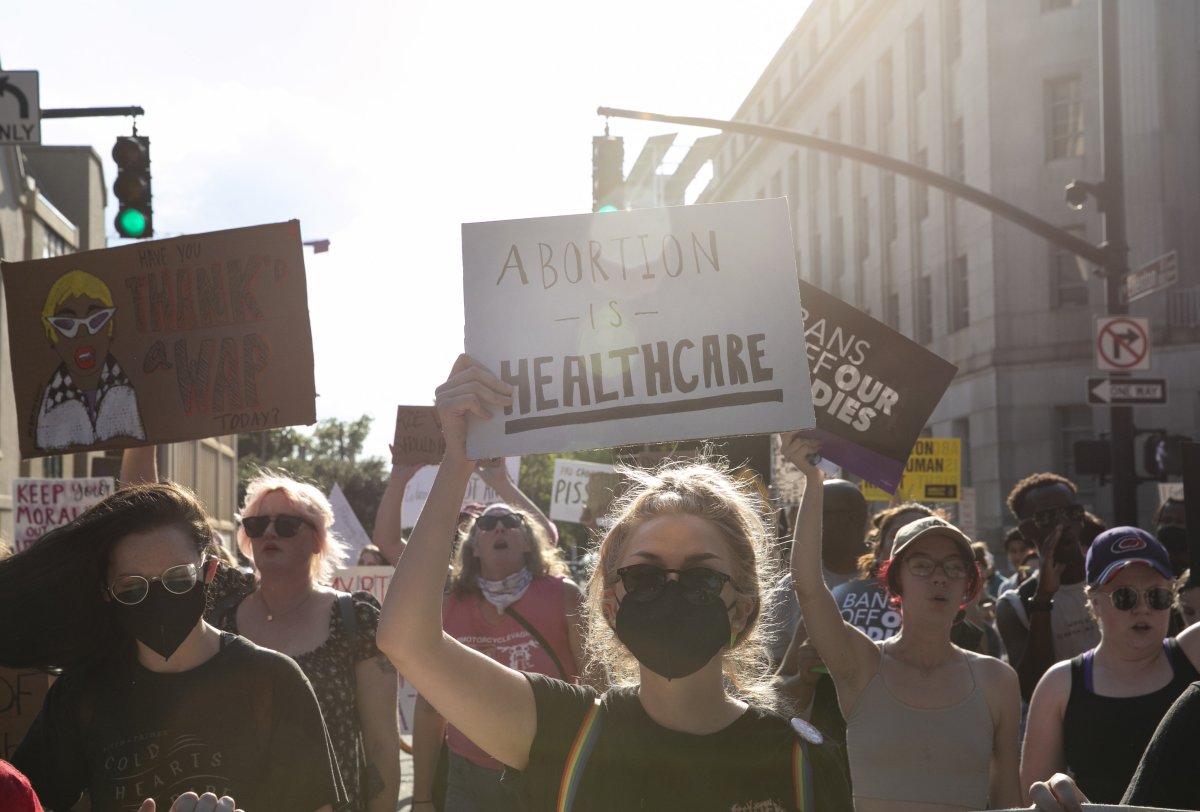Today marks one year since six U.S. Supreme Court justices uprooted five decades of constitutional precedent that protected women's freedom to make their own reproductive health care decisions. One long and difficult year for so many women and their families, for the clinic volunteers, and for the courageous health care providers working long hours to keep women healthy and safe.
As cruel bans fell into place in states across the country, many women have been left fearful, wondering if they'll be able to get the medical care they need. Even care that could save their lives has been put in jeopardy as doctors are forced to navigate tangled legal webs instead of focusing on delivering health care.
Over the last year, as states around us banned abortion, North Carolina became an access point for women across the Southeast seeking reproductive care. We heard stories of patients driving through the night to make early morning appointments, crying tears of relief as they arrived knowing they were in safe hands to get the medical care they needed.

When the Supreme Court ruling came down, I moved quickly and signed an executive order to help protect clinics, providers, and patients—whether they call North Carolina or any other state home. We convened law enforcement to ensure they are ready to protect access to these clinics. And this year, I joined 21 other governors to create the Reproductive Freedom Alliance, dedicated to defending the right to an abortion across the country.
But in May of this year, when North Carolina Republicans, armed with a new one vote supermajority, released a bill under cover of night to ban abortion, we knew that we were in for an uphill battle. And even after they overrode my veto by one vote, with every Republican voting yes and every Democrat voting no, we are still fighting it today.
Republicans who put it together behind closed doors with little, if any outside input from medical experts, strenuously defended their new law that they passed in just 40 hours, claiming that it was not as restrictive as it seemed. As the law is scheduled to take effect on July 1, just a few days from now, we are working to hold them to that promise, by ensuring that the law doesn't unduly burden women as they seek needed care. In addition, a lawsuit has been filed in federal court making strong arguments that this cruel and confusing law is unconstitutional.
But North Carolina Republicans are not done, and they aren't stopping at this 12-week ban. They have promised to go even further in banning abortions in our state. The speaker of the House favors a six-week ban, before many women even know they're pregnant. And the independently elected lieutenant governor, a Republican who hopes to be the next governor when I'm term-limited, has said he wants to ban abortion "for any reason."
They will try to hide the dirty details, dress it up and disguise it, and even flat out lie about it, but we know that if Republicans win elections, they will not stop until abortion is outlawed entirely. Even the North Carolina Republican legislators in swing districts who promised their constituents they wouldn't vote to further restrict abortion access went back on their word and voted for this abortion ban when the party bosses came calling.
We've seen it in North Carolina and around the country. Republicans are unified in their attacks on women's health.
In the last year, so many people, outraged and furious, have turned their attention to this critical fight for women's health. They know that your zip code should not determine your fundamental rights. Here is my message—if you're angry about this, your voice and your actions can make a difference, now and at the ballot box. Anti-abortion Republicans will try to shut you out and shut you up, but do not be dissuaded. Find a way to make your voice heard. The 2024 elections at every level will have enormous consequences for the future of women's health, and that future is in our hands.
Roy Cooper is governor of North Carolina.
The views expressed in this article are the writer's own.
Uncommon Knowledge
Newsweek is committed to challenging conventional wisdom and finding connections in the search for common ground.
Newsweek is committed to challenging conventional wisdom and finding connections in the search for common ground.
About the writer
To read how Newsweek uses AI as a newsroom tool, Click here.






